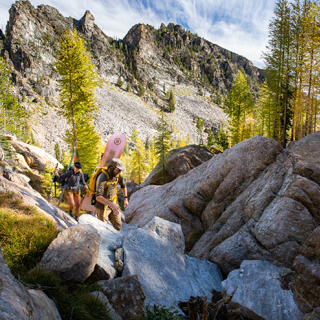Graduate Programs
Conserve, Sustain and Restore Complex Systems
Our Master's and PhD programs use rigorous science to examine ecological and social issues in the West and around the world.
To apply to a graduate program in the W.A. Franke College of Forestry and Conservation, first find an area of focus you're interested in pursuing and faculty members who have graduate study opportunities in that area. Contact the FCFC faculty members who have similar interests to you by selecting any name in that area. You will then be directed to that faculty member’s personal page containing all of their contact information.
We do not have a set quota for the number of graduate students we accept each year. All admission decisions are made by our faculty once applications and all supplemental materials have been submitted and reviewed — you do not need to secure a commitment from a faculty member before applying, but a faculty member will have to be willing to accept you to be admitted into the program.
